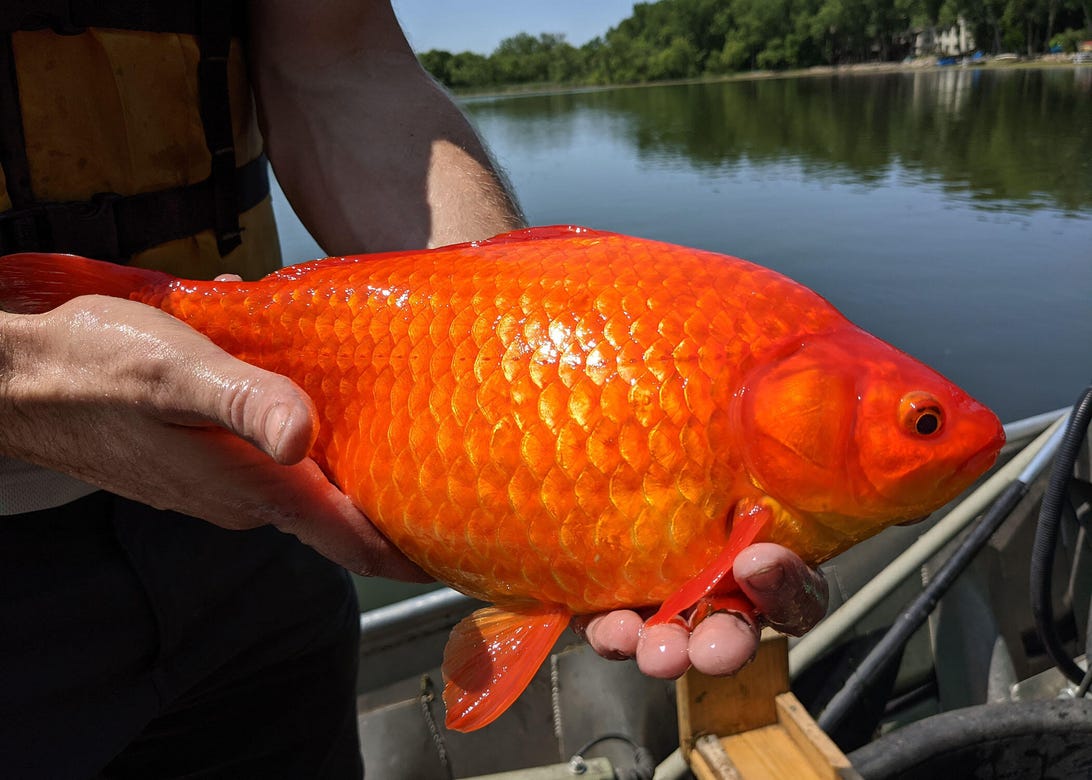



This football-sized goldfish found in Keller Lake in Burnsville, Minnesota, was probably once someone’s pet.
City of Burnsville
Apparently, goldfish owners who tire of having a finny pet occasionally release them into public bodies of water. That’s not a good idea. The city of Burnsville, Minnesota, explained Friday why pet owners shouldn’t just dump their fish into the nearest lake.
Alongside three photos of enormous, football-size goldfish, the city wrote, “Please don’t release your pet goldfish into ponds and lakes! They grow bigger than you think and contribute to poor water quality by mucking up the bottom sediments and uprooting plants. Groups of these large goldfish were recently found in Keller Lake.”
Please don’t release your pet goldfish into ponds and lakes! They grow bigger than you think and contribute to poor water quality by mucking up the bottom sediments and uprooting plants.
Groups of these large goldfish were recently found in Keller Lake. pic.twitter.com/Zmya2Ql1E2— City of Burnsville (@BurnsvilleMN) July 9, 2021
According to the Washington Post, Burnsville residents recently began complaining about “a possible infestation” in the lake, and the city and neighboring Apple Valley sent a water-pest company, Carp Solutions, to check it out.
Twitter users responded, with one person sharing a photo of an equally large goldfish they also found in Keller Lake.
“That’s where I found this one a couple years ago,” Josh Holt wrote, sharing a photo of a dead goldfish the size of a tennis shoe.
Some people compared the giant goldfish to the fishlike Pokemon creature Magikarp.
“A few goldfish might seem to some like a harmless addition to the local water body, but they’re not,” the Minnesota Department of Natural Resources said back in January. “Goldfish are in the minnow family and can work their way through city stormwater ponds and into lakes and streams downstream with big impacts, by rapidly reproducing, surviving harsh winters, and feeding in and stirring up the bottom like their close relatives, the common carp.”
And a temporary decision to re-home a pet fish can affect a lake or other body of water for a long time to come.
“Illegal stocking can upset the delicate balance of existing fish communities, spread fish disease, and bring other unintended consequences that can linger for years,” the DNR article says.
There are other options for unwanted fish. The US Fish and Wildlife Service suggests finding someone else who wants your fish, possibly by donating it to a pet store or school, or asking in an online forum of fish owners.
